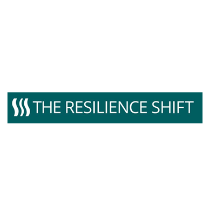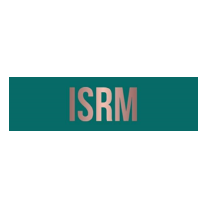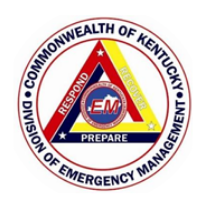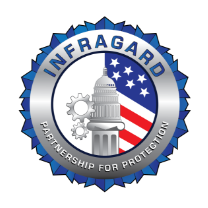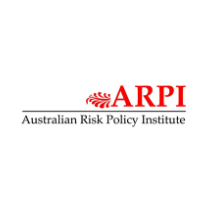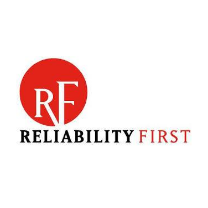Building a civilization-scale vision:
Planet-wide collaboration for a resilient, secure and sustainable future
Should attend?
- Emergency management professionals
- Business continuity professionals
- Researchers
- Electric, Transportation, Finance, Gas, Energy, Health, and Water sectors
- Academia
- Government officials
- Practitioners
- NGOs / Charities
Don’t miss this unique opportunity to learn about Black Sky events and the tools that will enable us to overcome them from leading experts in the governmental, infrastructure, and academic sectors. During the two-day summit, we will:
Describe the problem and unpack the implications, conduct current state capability assessment, dive deeper and evaluate where we need more information and research opportunities to measure resilience, explore the finance sector and the question of making finance resilient. What do other sectors need from finance to build resilience to prepare for a Black Sky event?
SHOULD YOU attend?
Collaborate with colleagues in all sectors to develop an innovative resilience plan for infrastructures and communities
Build new
relationships
Create an impact
in your organization
Learn about Readiness
for the Black Sky events
Live training on
catastrophic events
Meet with companies
from all around the world
CONFERENCE TICKETS

TOP 5 SESSIONS

SESSION 1Expanding Risks and Threats
Risks to societal continuity | The infrastructure interdependency problem | In transition: the renewable energy economy addressing Climate Change
SESSION 2Collaborative Whole-of-Society Resilience Planning
Multi-sector resilience collaboration | Governance and regulatory policy | Community resilience as a key priority and opportunity | Corporate vs Government Black Sky resilience leadership
SESSION 3Where are we today?
Civilization’s Vital Signs:
How serious are the risks,
and how confident are we
in our resilience?
SESSION 4Where are we going?
20:20 Foresight:
A strategic global
perspective on what it
will take to change course
and put global Black Sky
resilience in place.
SESSION 5Hope for Human Continuity
The Human Continuity
Project™ | “Building a
Global, Collaborative
Foundation for Hope.”
Our 2023 conference speakers and panelists list
Temi Afolabi
Temi leads Nichols’ Environment and Energy transition business with specific focus on Energy Transition, Net Zero Delivery, Nature Based Solutions & Biodiversity and Water. Providing clients with strategic support in the delivery of complex projects, providing support in the area of transformational change for clients, people and planet. This is achieved through creativity; forward systems thinking and change leadership that enables a thriving organisation and economy.
Temi has a background in Mechanical Engineering, and he has led teams in the successful delivery of complex infrastructure projects. At Crossrail he provided strategic direction and intervention on Testing & Commissioning activities, to enable the effective and efficient delivery of the Crossrail Programme. He provided leadership to station, shaft and portals teams in the area of systems integration as well as leading the resolution of programme wide technical integration challenges.
Temi is a forward systems thinker, a natural leader who uses his skills and leadership style to ensure positive values, culture and behaviours that delivers long term benefits and outcomes. He seats on the Royal Academy of Engineering policy, skills and education committee, he works with various communities by providing strategic guidance on community related challenges and he provides mentoring support to various organisations.
Strategy and Operations Director
The Nichols Group, United Kingdom
Richard Anderson
Richard Anderson is the Co-Director of the Transport Strategy Centre (TSC) at Imperial College London, an applied and academic research division within the Department of Civil and Environmental Engineering. He co-directs a multi-disciplinary team, of researchers, practitioners, and consultants, specialising in the strategy, operation and management of transportation.
Richard leads the Centre’s initiatives in international benchmarking, currently serving over 130 metros, railways, urban bus, light rail, airports and transport authorities globally. The Community of Metros is the most significant and long-standing of the consortia led by TSC. The annual benchmarking undertaken by the TSC is complemented by analyses of the key strategic and tactical challenges facing the industry, including recovery from COVID, financial sustainability, operational resilience and decarbonisation. The impact of the TSC’s research and its application was a case study for the Faculty of Engineering’s 2021 Research Excellence Framework submission, with benefits to industry measured at over £2 Billion over a 10-year period.
Richard has a unique, global knowledge of urban public transport operations and is a specialist in performance benchmarking and mass transit. The team he leads provides advice to the leaders of major transport operators worldwide. Richard combines an understanding of the commercial imperatives facing transport systems with academically rigorous research and analysis.
Managing Director and Co-Director, Transport Strategy Centre, Imperial College London
Rt Hon. Lord James Arbuthnot of Edrom
The Rt. Hon. Lord James Arbuthnot, MP, Baron Arbuthnot of Edrom, became a Life Peer and a Conservative Party member of the House of Lords in 2015. Previously, he served as Chair of the UK House of Commons Defence Committee, a position he held from 2005 to 2015. From 2001 to 2005 James Arbuthnot was Shadow Secretary of State for Trade, and also a member of the Intelligence and Security Committee.
Previous to this, he served as Minister of State for Defence Procurement (1995-1997) and Opposition Chief Whip (1997 -2001), after serving as a Government Whip and Parliamentary Undersecretary of State at the Department of Social Security. James Arbuthnot first entered the UK Parliament in 1987 as MP for Wanstead & Woodford and, beginning in1997, represented North East Hampshire.
Former Chair of the UK House of Commons Defence Committee
Allan Asher
Allan currently chairs FairerFuture.au, a for-purpose, non-profit think tank and advocacy organisation and is a member of the Australian Energy Regulator's (AER) Consumer Reference Panel. He has served as the Commonwealth Ombudsman, CEO of Australian Communications Consumer Action Network, Energywatch UK and wsa deputy chair of the Australian Competition and Consumer Commission. Allan is working in partnership with the NSW Department of Customer Service to prevent or reduce cyber fraud against seniors
Vice-President Competition and Consumer Policy, ARPI, Australia
Dr. Greg Autry
Greg Autry is an American space policy expert, educator, entrepreneur, and author. He is a Clinical Professor of Space Leadership, Business, and Policy at the Thunderbird School of Global Management at Arizona State University. He serves as Chair of the Safety Working Group on the COMSTAC. He was an assistant professor of Clinical Entrepreneurship in Marshall School of Business at the University of Southern California. Prior to that, he served as an adjunct professor of strategy and entrepreneurship at the Merage School of Business at the University of California, Irvine. Autry served on the NASA Agency Review Team for the incoming Trump administration in 2016 and temporarily as the White House Liaison at NASA in 2017. He holds an MBA and Ph.D. from the University of California, Irvine.
Clinical Professor & Director of Space Leadership at Thunderbird School of Global Management, Arizona State University. Visiting Professor Imperial College London, USA
Prof. Samer Bagaeen
Professor Samer Bagaeen’s breadth of experience lies across local government, academia, and urban planning. He identifies interdisciplinary problems and solutions in the context of climate resilience in roles across multiple sectors. He is a Technical Director with the Environmental Planning team at Arcadis, a Professor of Planning & Resilient Systems, and an elected City Council Member since 2019.
Samer is a Chartered Town Planner, a Fellow of the Royal Institution of Chartered Surveyors, a Design Council Expert, and a Fellow of the Royal Society of Arts. He is a Trustee of the Royal Town Planning Institute and a Non-Exec Board Member for the South East at Royal Institution for Chartered Surveyors. He is Chair of the RTPI’s International Committee in 2023.
He previously worked with the Rockefeller Foundation’s global resilience programme as an Associate Director. In Kent, Samer currently manages Cultural Co-location, a Creative Estuary project funded by the Cultural Development Fund and his team has developed a planning for culture toolkit.
He served on the Policy Council at the Town and Country Planning Association from 2010-2020 where he also served as a Trustee for five years. Samer also worked for the RICS as an officer looking after thought leadership relationships.
In local government, as a Councillor in Brighton and Hove, Samer has served on the city’s Health and Wellbeing Board throughout the pandemic and more recently served on the council’s Audit Committee, the Environment, Transport and Sustainability Committee and the Tourism, Equalities, Communities and Culture Committee.
Technical Director at Arcadis for town planning and stakeholder capability, United Kingdom
David Batz
David Batz works for Edison Electric Institute, with a renewed focus on cyber and infrastructure security for investor owned electric utilities.
Mr. Batz assists members with understanding and applying appropriate security solutions to address emerging threats and issues, including the Internet of Things (IoT). He has provided professional technology and security solutions and services for 30 years, with over 20 years of experience working with owners and operators within the energy sector.
In addition, David Batz leverages over a decade of energy, and regulatory compliance as well as physical and cyber security policy experience and engagement with federal agencies including Department of Energy, and the Department of Homeland Security.
Batz is a member of InfraGard, and serves on the SANS Advisory Board. He has served on the North American Electric Reliability Corporation (NERC) Critical Infrastructure Protection Committee (CIPC) and the CIPC-Executive Committee.
Batz has authored various articles and presented at numerous events on securing critical infrastructure, industrial systems and standardization topics for prominent industry associations including NIST, National Association of Regulatory Utility Commissioners, US-AID and the American Society Civil Engineers to name a few.
Mr. Batz is a Certified Information Systems Security Professional (CISSP), and has multiple security certifications.
Managing Director, Cyber & Infrastructure Security at Edison Electric Institute USA
Dr Chris Beck
Chris Beck is the Chief Scientist and Vice President for Policy at EIS Council, where he has worked since May 2011. He is responsible for the analysis, design, and promotion of critical infrastructure resilience for widespread, long-duration power outages initiated by Black Sky threats.
Dr. Beck is a technical and policy expert in several homeland security and national defense related areas including critical infrastructure protection, cybersecurity, science and technology development, WMD prevention and protection, and emerging threat identification and mitigation. Dr. Beck served as the Subcommittee Staff Director for Cybersecurity, Infrastructure Protection, and Science and Technology and was the Senior Advisor for Science and Technology for the House Committee on Homeland Security (CHS), US House of Representatives, where he worked from May 2005 to May 2011. Prior to CHS, he worked in the office of Congresswoman Loretta Sanchez for three years, beginning as a Congressional Science Fellow and then as a legislative assistant.
Before government service, Dr. Beck was a postdoctoral fellow and adjunct professor at Northeastern University. He holds a PhD in physics from Tufts University (2001) and a B.S. in physics from Montana State University (1994). He served in the Marine Corps Reserve for five years (1987 – 1992).
Chief Scientist and Vice President for Policy EIS Council, USA
Scott Blevins
Major Scott Blevins (Retired) served nearly 30 years in the Kentucky National Guard. Scott served in the Signal corps throughout his military career and has both hands on and strategic planning experience on a wide array of military tactical and commercial communications equipment. Scott’s assignments included company level command, battalion operations officer, battalion and brigade S6 officer, and communications planner and network operations manager at the Kentucky Joint Forces State Headquarters.
Scott’s expertise in military communications, public safety communications, and commercial data and voice communications makes him an invaluable planner for disaster response planning. During his tenure as the Kentucky National Guard’s Communications Manager, Scott was called upon to assist in planning, providing and restoring communications during numerous floods, tornadoes and other federally declared disasters to include the 2009’s catastrophic statewide ice storm in Kentucky.
In 2016 Scott founded his own Information Technology consulting firm, Leveled Up Inc. to help leaders leverage technology in accomplishing their strategic goals.
Scott holds an MBA from the University of Louisville and a Bachelor of Science degree in Justice Administration from the University of Louisville.
Technical Director for Communications Systems, EIS Council, USA
Terry Boston
Terry Boston P.E served as CEO of PJM from 2008 to 2016 and received a 2017 Presidential Appointment to the National Infrastructure Advisory Council. He was the 130th president of the Association of Edison Illuminating Companies (Thomas Edison was the 1st) and past president of GO 15, the association of the world’s largest power operators. He also received the International Leadership Awards for renewable integration from both the Electricity Storage Association and the Utility Wind Integration Group. He was unanimously selected the winner of the Platts Global Energy Lifetime Achievement Award.
He has served on the Boards of GridLiance (A Blackstone Company), Grid Protection Alliance, Dewberry Engineering, NAPEC, EPRI, and the National Academy's Board on Energy and Environmental Systems. Mr. Boston has a BS, engineering, Tennessee Tech & MS in engineering administration, UT.
President and CEO of Terry Boston, LLC, Former CEO of PJM Interconnection, USA
Tony Charge
Tony is an experienced senior executive across public, private, and community sectors and co-founder of ARPI and Strategic Risk Policy®™ with Michael Vincent from Monash University.
Tony’s diverse background has enabled him ‘to view things differently and contribute to the evolution of thinking about a new relationship between leadership and (redefined) risk for today’s world, in order to achieve informed decision-making.
Separately, though with an increasing degree of convergence, is Tony’s exploration and development of ‘qualitative analytics’ (Analytics 5.0) under the banner of Intelligence Augmentation (IA), with guidance from global academic Professor Keith Lyons.
Tony is an accredited risk and compliance professional and was formerly an Adjunct Associate Professor at the University of Canberra in leadership, risk, public policy, human resources, and qualitative measurement. Tony is a Fellow of ARPI, GRC Institute, RMIA, AFMA and IML.
ARPI, President and Chairman, Australia
U.S. Congresswoman
Yvette Clarke
A Brooklyn native whose roots are firmly planted in her Jamaican heritage and in the neighborhood where she grew up and currently resides, the Flatbush section of Brooklyn, U.S.A., Representative Yvette D. Clarke was first elected to Congress in November 2006 and represents the 9th Congressional District of New York. Rep. Clarke is the Vice Chair of the Energy and Commerce Committee, and is a member of the House Committee on Homeland Security.
Through her leadership, Congress has enacted legislation and conducted oversight on a variety of critical issues, including cybersecurity, biodefense, pandemic influenza preparedness, nuclear detection, mitigating radiological attacks, agro-terrorism, homeland security research and development, and critical infrastructure protection, including most especially protection of the U.S. electric grid.
Importantly for EIS Council, she is the Democratic U.S. Congressional Co-Chair of the EIS Summit Series, beginning with the very first Summit in 2010.
Yvette Clarke
House Energy and Commerce Committee, and Committee on Homeland Security, USA
Oscar Criado
Oscar Criado is a Senior Research Associate at the Transport Strategy Centre (TSC) at Imperial College London.
Oscar has fourteen years of professional experience as a civil engineer specialised in transport engineering, in roles related to both research and industry. Oscar joined the TSC in 2015, and since then he has focused on railway asset management and airport benchmarking. He is currently the project manager of the Railway Infrastructure Asset Management Group and co-project manager of the Airport Benchmarking Group.
Previously, Oscar worked at Network Rail, the infrastructure manager of the railway network in the United Kingdom, and at the Centre for Innovation in Transport (CENIT), a research centre at the Technical University of Catalonia, in Barcelona (Spain).
At Network Rail, Oscar was a project manager and analyst within the Strategy Group and his role focused on long term strategic planning of the British network developing capability analysis for route studies, and assisting the early stage development of infrastructure projects with railway operational analysis.
At CENIT, Oscar participated in research projects in the transport sector, related to railway operations, railway infrastructure, infrastructure pricing and transportation infrastructure financing.
Oscar has a Master of Civil Engineering (MEng) from the Technical University of Catalonia and a Master of Science (MSc) in Transport and Business Management from Imperial College London.
Senior Research Associate at the Transport Strategy Centre (TSC), Imperial College London
Amihai Dekel
Amihai had a wide International customer facing experience across multiple countries (emphasis in the US) and cultures with operations and manufacturing background.
Experienced in Military, Homeland Security, Critical Infrastructures, Intelligence and Cyber.
Director, BD & Sales
Communications Directorate
, Rafael Advanced Defense Systems Ltd, Israel
Dr. Mireille Elhajj
Dr. Mireille Elhajj is currently an honorary lecturer at Imperial College London. She is also a member of the International Advisory Board (IAB) of the Civil and Environmental Engineering Department and a program Lead on The Space Integrated Outreach program. Previously, she was a Lecturer and an “Infrastrcuture and Space Science Fellow” at the Institute of Security Science and Resilience. She has published various papers in Positioning , Navigation and Timing (PNT), Interference mitigation and novel integrity monitoring methods for various applications. her private boutique consultancy, Astra-terra Limited, is sub contractor to various projects with IC consultants in the domain of aviation, smart cities , resilience of infrastructure, transport and space.
She hold a PhD from Imperial College London where she researched the use of new GPS signal to improve accuracy for surface transport. She has an MSc in Financial Analysis and Fund Management (FAFM) from Exeter University and an MSc in Transport engineering from Imperial College London.
Senior Strategy Consultant and CEO, Astra -Terra, United Kingdom
Naomi Etzion
Naomi Etzion works in the Planning and Development division at NOGA - the Israeli Independent System Operator company.
She worked at Israel Electric Corporation for more than 30 years, until NOGA was established by the Israeli government at 2020.
Her fields of expertise are power system dynamics and transient phenomena studies, power system survivability, increasing power system efficiency under system development constrains. In this role she also analyzes system resilience after multiple component outages that can cause extensive regional blackouts, using advanced computational methods.
Naomi Etzion is involved in preparing the Israeli system to massive absorption of renewable energy projects. In this context, she is in charge of the dynamic studies regarding the influence of connecting new generation units, and defines the requirements that will ensure the continuity and survivability of the future electric supply.
By leading the resilience team in the planning division she is responsible for planning the electric system such it will withstand diverse events that can widely affect it.
Naomi Etzion holds B.Sc. Degree and M.Sc. Degree in Electrical Engineering, both from the Technion, Haifa, Israel.
Head of Power System Dynamics Dept.
NOGA - Israeli Independent System Operator.
Trent Franks
Trent Franks (born June 19, 1957) is a former American politician and businessman who served as the U.S. representative for Arizona's 8th congressional district from 2003 to 2017 (numbered as the 2nd district from 2003 to 2013). He is a member of the Republican Party. During his tenure, Franks served as vice chairman of the United States Senate Armed Services Subcommittee on Strategic Forces and chairman of the United States House Judiciary Subcommittee on the Constitution, Civil Rights and Civil Liberties.
Chairman, Liberty Petroleum
Corporation; Former Member of
Congress, US
Dr. Gideon Friedmann
Gidon is Stanford Physics Ph.D. graduate with recent years experience in the energy industry, the electricity market and energy efficiency with a strong emphasis on policy and excellent communications and leadership skills. Almost 20 years of industry experience in program management, system engineering management, and business development, with emphasis on computer vision and image processing. Worked in the energy,
medical instrumentation, semiconductor metrology and biotechnology industries. In the last 15 years strong emphasis on the business and economic aspects. Experience in running a small startup with focus on business development. Experience in setting up a new development project and running it from scratch. Excellent system view and understanding of complex multi-disciplinary systems involving deep techno-economic implications. Hands-on, practically oriented with emphasis on taking the initiative and using innovation to achieve results.
Chief Scientist, IMoE (Israel Ministry of Energy), Israel
Dr. Ehud (Udi) Ganani
Dr. Ehud (Udi) Ganani, as Vice President for Strategic Programs, is responsible for the development, coordination, and management of several key programs: GINOM AI, BSX, Digital Transformation, EIS Academy, and EMP Consulting. All these programs are International.
Udi Ganani is a co-founder of Contguard Ltd., a global maritime container tracking startup. He is also a member of the SPECTRUM Group in Alexandria, VA and a Research Associate in ICT International Institute for Counter-Terrorism at IDC Herzliya.
Previously, Dr. Ganani served in senior management roles in a number of corporations providing high technology solutions for security applications. He was Chief Executive Officer and President of Rabintex Industries Ltd., served as CEO and chairman of TraceGuard Technologies Inc. and chairman of Bird Aerosystems Ltd. He also chaired the public advisory committee for Aerospace, Defense and Homeland Security for the Israeli Export Institute.
Prior to that, Dr. Ganani served as a senior manager in some of Israel’s largest and most important aerospace companies: He served as Chief Executive Officer of Israel Military Industries, Vice President of Marketing and Business Development for Rafael, and headed Rafael’s rocket motors development group.
Dr. Ganani holds a Doctorate of Science in Chemical Engineering from Washington University, St. Louis, MO and a Bachelor of Science in Chemical Engineering from the Technion – Israel Institute of Technology in Haifa, Israel.
Vice President for Strategic Programs, EIS, Israel
Lihi Rotem Ganani
Lihi joined EIS Council’s leadership team in 2020, serving as the Director of Digital Transformation. She is responsible for managing all the Council’s digital initiatives with the aim of building and growing the international online community, supporting new programs and initiatives. Lihi leads EIS projects related to marketing and branding, is in charge of social content, CRM implementation and the EIS academy.
Prior to joining the Council, Lihi conducted industry analysis and data strategy projects for FANS-LEAGUE, an Israeli mobile gaming start-up.
While living in Madrid, Spain, Lihi worked at the IE Business School, one
of the world’s top business schools. With a skill for creating partnerships and focusing on innovation, she was involved in organizing yearly programs, designing the startup Lab – a startup acceleration program and the Business Impact Lab – an open innovation program. She ran “Challenge weeks”, one week Design Thinking programs with leading corporates and built a marketplace involving SMEs, corporates, and students for innovation-related consulting projects focused on growth.
In Israel, Lihi served as a judicial advisor in the Israeli circuit court and worked for boutique law firms. Lihi holds a BA in Business, an LLB in Law, a Master of Laws (LLM), and an MA in Digital Transformation and Innovation Leadership
Director of Digital Transformation, EIS Council, Madrid
Dr. R. Matthew Gardner
Dr. R. Matthew Gardner (“Matt”) is vice president– Transmission, Dominion Energy Virginia.
He is responsible for over 6,700 miles of electric transmission lines and more than 800 substation assets providing service to the company’s 2.7 million customers. These responsibilities include transmission and substation planning, engineering, project development, construction, operations and maintenance, compliance and the Electric Transmission System Operations Center.
Since Gardner joined the company in 2008, he has held numerous roles in planning, operations,
maintenance, and engineering. In 2022, he was named general manager– Transmission for Dominion Energy Virginia. Gardner assumed his current post in February 2023.
Prior to joining Dominion Energy, Gardner worked with the Tennessee Valley Authority, ABB Corporate Research Switzerland, Grenoble Institute of Technology in Grenoble, France, and did event analysis consulting for the North American Electric Reliability Corporation (NERC) through Lawrence Berkeley National Lab (LBNL). He previously served as a lead engineer in key projects with the U.S. Department of Energy (DOE) and served on the Leadership Team of the North American Synchrophasor Initiative (NASPI) as a liaison to the broader research community.
Gardner is active in several industry groups, including the Institute of Electronic and Electrical Engineers (IEEE), where he serves as a senior member of its Power and Energy Society (PES); Cigré; the Electric Power Research Institute (EPRI); and the North American Transmission Forum. He is also involved with a number of academic institutions and consortia, including serving as Executive Engineer in Residence at Virginia Commonwealth University, as well as advisory and advocacy roles at George Mason University, University of Tennessee (Knoxville), Virginia State University, and Virginia Tech. He has previously served on Virginia Tech’s Bradley Department of Electrical and Computer Engineering, as well as the University of Tennessee, Knoxville’s Center for Ultra-Wide-Area Resilient Electric Energy Transmission Networks as chair and vice-chair.
Gardner received his doctorate in Electrical Engineering from Virginia Tech, where he was a Bradley Fellow. He also holds bachelor’s and master’s degrees in Electrical Engineering from Virginia Tech.
Vice President–Transmission Dominion Energy Virginia, USA
Mark Ghilarducci
Mark Ghilarducci serves as the Director of the California Governor’s Office of Emergency Services (Cal OES) within the Office of Governor Gavin Newsom. Ghilarducci was appointed January 8, 2019 by Governor Newsom to continue his service as Director, following his appointment on July 1, 2013 by Governor Edmund G. Brown Jr. Ghilarducci also previously served as Secretary of the California Emergency Management Agency, appointed in February 2012 by Governor Brown.
As a member of the Cabinet, Director Ghilarducci serves as the Governor’s Homeland Security Advisor and oversees statewide public safety, emergency management, emergency communications, counter-terrorism efforts and the State Threat Assessment System.
In 2000, Ghilarducci was appointed Deputy Director of the Governor’s Office of Emergency Services where he oversaw statewide emergency operations, planning and training. Ghilarducci also previously served as a Federal Coordinating Officer (FCO) with the U.S. Federal Emergency Management Agency (FEMA) under President William J. Clinton.
Prior to his appointments at Cal OES and FEMA, Director Ghilarducci served as Deputy State Fire Chief at Cal OES, where he oversaw Special Operations, including the State Urban Search & Rescue Response System. He has more than 30 years of experience and diversified service in public safety and government management at the local, state and federal levels and spent over twelve years in the private sector, working in security & crisis management around the world.
In addition to his duties serving as Director of the Governor’s Office of Emergency Services, Director Ghilarducci is designated by the Governor as Chairman of the Board of Directors of the California Earthquake Authority (CEA) and as Chairman of the California Catastrophic Response Council. He also serves on the Executive
Committee of the National Governor’s Association (NGA)-Governor’s Homeland Security Advisory Council; the Environmental Information Services Working Group of the Advisory Council to the National Oceanic and Atmospheric Administration (NOAA); the State Board of Fire Services; and the Board of the Western States Seismic Policy Council (WSSPC).
Director Ghilarducci holds a Bachelor of Science from the University of California at Davis and is a graduate of the Fellowship Program for Senior Executives in State and Local Government at the John F Kennedy School of Government at Harvard University.
Director of the California Governor’s Office of Emergency Services (Cal OES), USA
Dr. Jeni Giambona
Dr Jeni Giambona is the Head of Stakeholder Engagement within the Department of Civil and Environmental Engineering (CEE). Jeni got her Doctorate from the University of Reading and has 15+ years’ experience of working in the UK higher education sector, delivering support across STEM and HAAS subjects – with a key research engagement, impact and development focus.
Most recently, she has worked at Imperial College London as Head of Stakeholder Engagement – a senior strategic role working closely with world-leading faculty, industry and policy leaders, where she leads in the development and implementation of research, development, engagement, dissemination and impact strategies within a broad and interdisciplinary Department. In this role, she is also liaising with external funding bodies. In her role, Jeni also connects relevant research across the Department with policy-makers and businesses. Together with the team at CEE and academics across the Department, she delivers outputs for those audiences ranging from briefing papers through to workshops and events. She has expanded these outputs to include digital learning through a Systems Engineering Leadership Course, or CPD courses such as DfMA and IDD Leadership Development.
Jeni keeps abreast of developments in the UK and internationally and shares this information with the Imperial community. This information helps target research efforts and impact engagements as effectively as possible.
Prior to this, she worked in other roles where she built substantial experience of university research support, development and engagement, including as Research Manager for the £6.23m EPSRC-funded Innovative Construction Research Centre at University of Reading, Deputy Director of Oxford University’s Centre for Corporate Reputation where she managed a research programme worth in excess £10m, and Funded Projects department at Henley Business School.
Jeni has engaged with high-profile external and internal stakeholders, both in the UK and internationally, and managed University full lifecycle of research from horizon-scanning through to bid development, project delivery, reporting, dissemination and impact. Jeni has herself carried out research and has a track record of publications with a focus on the relationship between trust and the adoption of technology to work collaboratively. Besides, she has strong expertise, and a passion, for researching and applying identity building through narratives.
Jeni is part of the UK CO2nstructZero working group that takes forward the sprint project on funding and financing net zero, and has contributed to the development of the NSF-funded Infrastructure Architecture Framework across disciplines for infrastructure management in the digital age. Jeni is also Imperial’s main representative to the Major Projects Association of the UK, including the Association’s Diversity Champions Network.
Head of Stakeholder Engagement, Department of Civil and Environmental Engineering (CEE), Imperial College London
Ronan Gulstone
Ronan Gulstone was appointed as Chief of Staff by Chairman Willie L. Phillips. Before being named Chief of Staff, Ronan served as a Legal Advisor to then Commissioner Phillips.
Previously, Ronan served as the Director of Policy and Legislative Affairs for Mayor Muriel Bowser in the District of Columbia. Prior to that Ronan worked as a Manager of Government Affairs for Washington Gas, and before that as Chief of Staff and Committee Director for Councilmember Kenyan R. McDuffie whose committee had oversight of the Public Service Commission of the District of Columbia. Ronan has also practiced as a litigator both in private practice and as a prosecutor.
Ronan earned a Juris Doctor from Howard University School of Law, and a Bachelor of Arts from the University of Toronto. He lives with his son in Washington, D.C.
Chief of Staff, FERC (Federal Energy Regulatory Commission), USA
Fergus Harradence
Fergus is the Deputy Director, Construction at BEIS. He is responsible for delivering the Construction Sector Deal, and working to deliver a more productive and sustainable construction sector in the UK. Member of the Digital Frameworks Task Group, the i3P Strategy Board and the Network+ Strategy Board.
Deputy Director, Infrastructure and Construction Department of Business, Energy and Industrial Strategy, United Kingdom
Sir David Higgins
The Board of Directors of Gatwick Airport Limited sets the company's long-term strategy, ensuring that it acts ethically and has the necessary resources to meet its objectives and responsibilities as a leading airport company. The current directors are:
Sir David Higgins, Chairman, Gatwick Airport LimitedSir David Higgins, Chairman
Sir David Higgins was appointed non-executive Chairman in January 2017.
As Chief Executive of Network Rail, Sir David initiated a major reform programme focussing on transparency, value for money and accountability. Sir David also served as Chief Executive of the organisation responsible for the delivery of the London 2012 Olympic Games, the Olympic Delivery Authority, establishing the organisation and negotiating the overall budget with HM Treasury, and led the commercial negotiations for Stratford City, London & Continental Railways, and Westfield.
Sir David holds a degree in Engineering from Sydney University and a Diploma from the Securities Institute. He is also a Fellow of both the Royal Academy of Engineering and the Institute of Civil Engineers. He was appointed Chairman of United Utilities in January 2020.
Chairman, Gatwick Airport Limited, United Kingdom
Lord Toby Harris
Lord Toby Harris has been Chair of the National Trading Standards Board, which is responsible for delivering national and cross-boundary consumer protection enforcement activity, since May 2013. He is also the UK Coordinator of the Electrical Infrastructure Security Council. In 2016, he conducted an Independent Review for the Mayor of London on London’s Preparedness to Respond to a Terrorist Attack.
At the request of the Minister for Prisons, he led an Independent Review on the Deaths of Young People in Prison Custody. The report (“The Harris Review: Changing Prisons, Saving Lives”) that was published in July 2015 and is the most substantial review of penal policy for nearly thirty years. He was also Chair of the Independent Advisory Panel on Deaths in Custody that reports to the Ministry of Justice, the Home Office and the Department of Health from 2009 to 2015.
He was made a Life Peer in June 1998 and is Chair of the Labour Peers. In 2013, he chaired the House of Lords Committee on the Olympic and Paralympic Legacy. He has been a member of the Joint Committee on National Security from 2016 and previously from 2010 to 2014. He was also a member of the House of Lords Select Committee that reported on Personal Internet Security in 2007. He is Co-Chair of the All-Party Parliamentary Group on Policing and an Officer of the Parliamentary Internet and Communications Technology Forum.
He was born in 1953 and graduated from Cambridge University in 1975, having studied Natural Sciences and Economics and where he was President of the Cambridge Union. His professional career began with four years in the Economics Division of the Bank of England. He then spent seven years at the Electricity Consumers’ Council, becoming Deputy Director in 1983. In 1987, he became Director of the Association of Community Health Councils for England and Wales (the national statutory body representing patients’ interests). He remained there until October 1998, when he established his own public affairs consultancy, Toby Harris Associates, which advises a number of major public and private sector bodies. He is a non-executive director of Cybersecurity Challenge UK, and a number of other companies.
He was a member of the London Assembly from May 2000 to June 2004, on which he led the Labour Group and he was the first Chair of the Metropolitan Police Authority (MPA). He continued to sit on the MPA from 2004 until 2012, as the representative of the Home Secretary with a remit to oversee the national and international functions of the Metropolitan Police – primarily its role in counter-terrorism and security. He also oversaw their risk management and audit, and was the interim chair of the Audit Panel for the Metropolitan Police Service and the Mayor’s Office for Policing and Crime.
He was a member of Haringey Council from 1978 to 2002 and was its Leader from 1987 to 1999, having previously spent five years as Chair of Social Services. He was Chair of the Association of London Government (now London Councils), representing the 33 local authorities in London, from its formation in 1995 until 2000, and is now one of its Joint Presidents. He previously chaired the Association of London Authorities.
From 1986 to 1993, he was Chair of the Association of Metropolitan Authorities’ Social Services Committee and led for local government in negotiations about the introduction of Community Care and the Children Act. He was also a member of the Executive (and later a Vice President) of the Local Government Association for a number of years. He was also a member of the Executive of the Association of Police Authorities from 2000 to 2006 and was a Vice President from 2006 until 2012.
He chairs the Wembley National Stadium Trust, was the first Chair of the Institute of Commissioning Professionals, has been a non-executive director of the London Ambulance Service, a Senior Associate of the Kings Fund, and a member of the Committee on the Medical Effects of Air Pollutants. He is a former member of the Committee of the Regions of the European Union.
Chair at National Preparedness Commission, United Kingdom
Ben Kuchta
Ben is a multi-award winning, multi-disciplined Chartered Engineer, Fellow and experienced leader with over 14 years of experience operating at various levels across the energy industry.
Ben has a proven track record and ability to deliver new services, technology and positive transformational change for complex systems with significant levels of risk. He is passionately driven to empower people, create valuable new products and services, enable growth and sustainability at all levels.
As the Group Resilience Improvement Manager for National Grid, he works across both the UK and US to drive and enable key business outcomes linked to organisational resilience, climate adaptation, the energy transition, innovation and continuous improvement.
Group resilience improvement manager at National Grid, England
U.S. Congressman
Doug Lamborn
Congressman Doug Lamborn is the current Chairman of the House Armed Services Subcommittee on Strategic Forces which oversees our nation's nuclear weapons, ballistic missile defense, national security space programs, and Department of Energy national security programs, ensuring that our nation is properly prepared for any missile or nuclear attacks. He is also a member of the House Armed Services Subcommittee for Tactical Air and Land Subcommittee. In addition to his service in the House Armed Services, Congressman Lamborn is the Vice Chairman of the House Natural Resources Committee where he serves as a member of the Energy and Mineral Resources, and Federal Lands subcommittees.
He has a strong record of advocating for our military and our veterans, defending the Second Amendment, and calling for immigration reform and tax reform. During his tenure in Congress, he has been a strong voice on behalf of small businesses and a consistent leader on pro-family issues. Congressman Doug Lamborn is honored to have served Colorado's Fifth Congressional District since 2006.
Doug Lamborn
House Armed Services Committee, and Natural Resources Committee, USA
Dr. Sally Leivesley
Dr Sally Leivesley is an advisor to companies and governments on catastrophic risk. She has spoken on ‘Black Hole events’ in previous EIS conferences and to the Baker Institute and is a specialist in the survival of populations, governments and infrastructure under extreme threats including nuclear war, CBRNE, cyber and natural disasters. In recent years she has chaired international scientific meetings on risks of emerging nuclear weapons, Covid-19, infrastructure resilience and hazardous near-earth objects. In the Cold War she trained as a scientific advisor with the British Home Office and exercised in the civil defence bunkers under London on maintaining life and infrastructure across the UK. In Australia she was the first civilian director of a disaster recovery unit and held government appointments for reforms of emergency services and health and safety. She has been contracted on nuclear power plant incidents – TMI, Chernobyl and Fukushima. As an international media commentator for BBC World Service and other news outlets she has commentated on the Chinese spy balloon over USA nuclear missile site, uranium package at London Heathrow airport, cyber;
terrorism; aviation losses; nuclear reactor disasters; Kabul 2021 evacuation; South China Sea; Polonium-210 and Novichok poisonings, Beslan siege; Iran; DPRK; USA Presidential security abroad; Covid-19, unexplained incidents such as MH370 and chemical incidents. Dr Leivesley holds memberships with the Register of Security Engineers and Specialists, IABTI, and RUSI and has authored three international patents in materials to counter explosives and chemicals.
Newrisk Limited UK, Former Cold War Scientific Advisor for all-out nuclear
attack protection, British Home Office, United Kingdom
Jeffrey J. Love
I am a Research Geophysicist in the Geomagnetism Program of the U.S. Geological Survey (USGS). My research has encompassed a variety of subjects related to the Earth’s magnetic field.
These days, I work in collaboration with colleagues on three subjects: 1. Using geomagnetic monitoring data and magnetotelluric survey data to evaluate geoelectric hazards of concern to the electric-power grid industry. 2. Statistical analysis of the rare occurrences of extremely intense magnetic storms. 3. Analysis of historical records of past space-weather events and their impacts.
Research theme: Geomagnetic Hazards
Magnetic storms; Solar-terrestrial interaction; Magnetotellurics; Induced geoelectric fields; Space climatology; Geophysical monitoring; Rare, extreme, historical geophysical events; Earthquake prediction; Hypothesis testing; Time series analysis; Statistical analysis
Professional Experience:
- USGS, Golden, CO, Research Geophysicist, Advisor for Geomagnetic Research, 2006 - Present
- Institut de Physique du Globe de Paris, Universite Paris Diderot, France, Visiting Professor, September 2015
- Institut de Physique du Globe de Paris, Universite Paris Diderot, France, Visiting Research Scientist, October 2012
- USGS, Golden, CO, Supervisory Research Geophysicist, Geomagnetism Group Leader, 20.
Research Geophysicist/ USGS Advisor for Geomagnetic Research, USA
Nassar Majothi
An accomplished and internationally experienced Chartered Engineer from within the rail and metro sector with a demonstrable record of achievement on major new build and upgrade programmes. Nasser Combines expert knowledge of engineering and integration processes with advanced management capabilities to lead large multi-functional teams to deliver results. Nassar is a very resourceful, financially astute and end-user focused individual, offering strong business and technical leadership, and exceptional influencing skills
Director of Systems Integration, HS2 LTD, England
Laurence Marzell
Laurence Marzell leads Whole System Approach, an operationally focused research and innovation practice he founded in 2022.
Drawing upon his practical experience of leading research and innovation projects for Serco’s UK & Europe division over the last decade, he has deep experience of the practical translation and exploitation of research and innovation outputs into day to day operational needs on the ground.
At Serco, Laurence led the participation in a number of EU Horizon 2020 projects in: Community policing; virtual and augmented reality training of crisis and first responders; the governance, integration and application of Earth Observation data with the wider information and intelligence mix; and resource and energy efficient renovation under the EU’s Green Deal.
Laurence speaks regularly at conferences and events and is a contributor into specialist and subject matter journals and books. He sits on the Centric External Advisory Board and is an Associate Partner of Intensive Engagement, a not-for-profit organisation building stronger and more resilient communities from the grass roots up, with communities, for public safety. Laurence was a contributor and advisory board member of an EU funded consortium of an International Security Management degree course now offered by Erasmus University, Rotterdam to in excess of 15,000 students worldwide.
PROBONO EU H2020 lead, Serco Belgium, United Kingdom
Joseph H. McClelland
Joseph H. McClelland was appointed the first Director of the Office of Energy Infrastructure Security (OEIS) by Chairman Jon Wellinghoff in September 2012. OEIS is the new FERC office that will provide leadership, expertise and assistance to identify, communicate and seek comprehensive solutions to potential risks to FERC-jurisdictional facilities from cyber attacks and such physical threats as electromagnetic pulses.
Prior to directing OEIS, Mr. McClelland served as the first Director of the Office of Electric Reliability, which was created in 2007. He joined the Commission in 2004 as Director of the Division of Reliability within the Office of Energy Markets and Reliability.
Mr. McClelland came to the Commission with more than 20 years of experience in the electric utility industry. He began his career with Allegheny Energy Inc., holding a variety of positions in engineering, marketing, regulation and rates, and project development. Immediately prior to joining the Commission, Mr. McClelland was the General Manager of the Custer Public Power District in Broken Bow, Nebraska. Joe holds a Bachelor of Science degree in Electrical Engineering from Pennsylvania State University.
Mr. McClelland lives in Chambersburg, PA with his wife and sons.
Director, Office of Energy Infrastructure Security,FERC (Federal Energy Regulatory Commission), USA
Dr. Alan Mendoza
Alan Mendoza is a Co-Founder and Executive Director of The Henry Jackson Society, Britain’s leading think tank fighting for the principles and alliances which keep societies free. He directs strategy for the organisation as well as acting as its main public face in mediums as diverse as the BBC, Sky, CNBC, Al-Jazeera, Bloomberg, LBC and TalkRadio. On the print side, Alan is a columnist for City AM, London’s business newspaper, and has contributed to The Times, The Telegraph, The Daily Mail, The Sun and a host of international newspapers and magazines.
Having obtained a B.A. (Hons.) and M.Phil in history at Gonville and Caius College, Cambridge, Alan completed a Ph.D. at the same institution. He is a Fellow of the Royal Society of Arts and was the Parliamentary Candidate for the Conservative Party in the Brent Central Constituency for the 2015 General Election. He is also a Trustee of the President Reagan Memorial Fund Trust
Executive Director of The Henry Jackson Society, United Kingdon
Juliet Mian
Juliet is the Global Resilience Skills Leader at Arup, working with a broad community of inspiring and dedicated resilience practitioners. She helps organizations understand their risks due to climate change and other shocks and stresses and achieve greater resilience of the infrastructure systems they are responsible for. She promotes a systemic approach to resilience, considering robustness, redundancy, adaptive capacity and the ability to transform where necessary. She enjoys her work's multi-disciplinary, cross-sectoral nature and seeks to deliver solutions through collaboration and integration across the system and throughout the infrastructure life cycle.
Global Skill Leader | Resilience, ARUP, England
Ornella Nicolacci
Ornella joins CEBA from the World Economic Forum, where she led the operations of the Platform for Accelerating Nature-Based Solutions. In this capacity, she created the structure necessary to effectively run the programs in several geographical regions and maximize impact through outcome-oriented stakeholder engagement. Prior to that, she worked to bring efficiency and compliance to the operations of Central America and the Caribbean at the Inter-American Development Bank and the Los Angeles Tourism Board. She’s also worked in investment research and security services. Ornella holds an MPA from the London School of Economics and Science Po Paris, and speaks Spanish, French and Italian.
Director, Transaction Acceleration Group, CEBA, USA
Prof. Washington Yotto Ochieng
Professor Washington Yotto Ochieng, PhD, FREng, is the Head of the Department of Civil and Environmental Engineering, and Chair Professor in Positioning and Navigation Systems at Imperial College London. He is also the Senior Security Science Fellow at the Institute for Security Science and Technology (ISST) at Imperial. Formerly, he was the Head of the Centre for Transport Studies and Co-Director of the ISST at Imperial. He is the current Vice President of the Royal Institute of Navigation (RIN).
A Chartered Professional Engineer, Fellow of the Royal Academy of Engineering (RAEng), and with a background in industry and academia, Ochieng has undertaken award-winning research and development in critical infrastructure resilience, user-centric mobility and positioning, navigation and timing (PNT) systems. Examples of his works include the design of positioning and navigation systems (including Europe’s EGNOS and GALILEO systems) for land, sea, air and space applications; and Air Traffic Management and Intelligent Transport Systems. In 2013, Ochieng was elected Fellow of the RAEng in recognition of his exceptional contribution. In 2019, he received the Harold Spencer-Jones Gold Medal (the highest award from the RIN) in recognition of his ‘extensive valued advice to policy makers and for pioneering research in safety-critical navigation and positioning systems’. He is a Member of the United States’ Institute of Navigation (ION) and Fellow of the United Kingdom’s Institutions of Civil Engineers, Chartered Institute of Highways and Transportation, RIN and Institution of Civil Engineering Surveyors.
Head of the Department of Civil and Environmental Engineering and Chair Professor in Positioning and Navigation Systems at Imperial College, London
Mikael Odenberg
Mikael Odenberg has held various public offices since the mid 70s. He entered into Parliament after the general elections in 1991 as a Moderate MP for the Stockholm Constituency. He stayed in Parliament for 16 years..
In Parliament Mr. Odenberg served as Party Spokesman on Energy Affairs 1994 – 1998, on Labour Market Affairs 1998 – 2002 and on Ecomic Affairs 2003 – 2006. He was Parliamentary Leader for the Moderate Party 2003 – 2006 and was appointed Minister for Defence after the general elections in 2006.
After resigning on his own request from the cabinet post in 2007 the Swedish Government in 2008 appointed him as President and CEO of Affärsverket Svenska Kraftnät (Swedish National Grid) – the Swedish electricity transmission system operator (TSO). He stayed in office during nine years, until 2017.
Mr. Odenberg has been member of the Swedish Government’s Crisis Management and President of the Royal Swedish Academy of War Sciences. He also has a reserve officer training, major (res.) in the Swedish Marines.
Former Secretary of Defence and former CEO of the National Grid, Sweden
Andrew Ott
I am currently a Director, Technical Operations, Tapestry, X’s moonshot for the electric grid, partnering with Audrey Zibelman and her team to decarbonize the electric grid. Tapestry actively seeks partners to collaborate on learning and development, utilizing AI and machine learning capabilities to make the grid easier to visualize, plan, build and operate with the required levels of clean energy needed to meet our climate goals.
As an expert in market design and power system operations, most recently, I was providing executive consulting services to energy companies worldwide prior to my role with Tapestry of the x moonshot factory. I serve as Co-Chairman of the Energy Transition Forum, an international not for profit organization that provides a venue for dialogue between C-level executive energy leaders about the key challenges and solutions to achieve a timely and responsible transition to a secure, affordable, and low-carbon global energy system. I am also a non-executive director on several corporate boards, directing companies towards success and a greener future.
From 2015 through 2019, I was President and CEO of PJM Interconnection, the largest power grid in North America and the largest electricity market in the world with a transaction volume of over $50 billion annually. While serving as PJM Chief Executive I was responsible for executive oversight of all aspects of company operation, for setting the strategic direction of the company and was a member of their Board. I am an expert in electricity market design and power system operation and have testified as an executive and technical expert in the US congress and in numerous legislative and regulatory proceedings. I have extensive experience in power system engineering, transmission planning, applied mathematics, electricity market design and implementation. I am an IEEE Fellow and an Honorary Member of CIGRE. I received a Bachelor of Science in electrical engineering from The Pennsylvania State University and a Master of Science in applied statistics from Villanova University.
Director, Technical Operations, Tapestry, X’s moonshot for the electric grid, United States
Prof. Gianluca Pescaroli
Prof. PescaroliI's research focus on complexity, cascading risk, and concurrencies applied to resilience management. Operational continuity is the way forward for managing systemic risk. Going beyond DRR and BCM.
He believes that society looks at risk exactly like an arrogant cat. And he can prove that.
Associate Prof Business Continuity, University College London, England
Esti Peshin
Esti Peshin is General Manager of the Cyber Division at the Israel Aerospace Industries Ltd. At the beginning of 2017, under Ms. Peshin’s management IAI’s cyber activity was expended from a Directorate to a Division. She serves also as the Director General (pro bono) of the Israeli Hi-Tech Caucus at the Knesset, the Israeli Parliament. Prior to assuming these roles, Ms Peshin was the Managing Partner of ENP Solutions Ltd., a strategic management consulting firm; a Partner at Destino Ventures LLC, a private equity firm; and a Partner at Hope Ventures Ltd, a Distributor and Business Development house. Previously, Ms. Peshin was the CEO of Waterfall Security Solutions, a provider of a foolproof physical security gateway for homeland security and mission-critical installations. Before joining Waterfall, she held an Account Director position in the Lawful Interception division of Verint Systems, Inc. She served 11 years in the Israeli Defense Forces, in an elite technology unit, where she was Deputy Director.
VP & General Manager, Cyber Division, Israel Aerospace Industries
Willie L. Phillips
Willie L. Phillips was named by President Biden to be Acting Chairman of the Federal Energy Regulatory Commission on January 3, 2023 and is serving a Commission term that ends June 30, 2026.
He most recently served as the Chairman of the Public Service Commission of the District of Columbia, named to that role in 2018. He served on the Commission since 2014. He is an experienced regulatory attorney combining nearly 20 years of legal expertise in public and private practice. He has an extensive background in the areas of public utility regulation, bulk power system reliability, and corporate governance.
Prior to being appointed to the DCPSC, Mr. Phillips served as Assistant General Counsel for the North American Electric Reliability Corporation (NERC), in Washington, D.C. Before joining NERC, he also worked for two law firms, where he advised clients on energy regulatory compliance and policy matters.
Mr. Phillips has also served on the boards of several organizations, including the board of directors for the National Association of Regulatory Utility Commissioners (NARUC) and the Organization of PJM States (OPSI). He also has served as president of the Mid-Atlantic Conference of Regulatory Utility Commissioners (MACRUC), and he has held leadership roles on several advisory councils, including the Electric Power Research Institute (EPRI) Advisory Council.
Mr. Phillips has a Juris Doctor from Howard University School of Law, and a Bachelor of Science from the University of Montevallo. He lives in Washington, D.C., with his wife and two children.
Chairman, FERC (Federal Energy Regulatory Commission), USA
James B. Robb
James B. Robb assumed the role of NERC’s president and chief executive officer
in April 2018. Robb oversees NERC’s mission of assuring the reliability and
security of the North American bulk power system. As president and CEO, Robb
leads the Electric Reliability Organization (ERO) responsible for key programs affecting approximately 1,400 bulk power system users, owners, and operators, including those programs focused on development of mandatory
NERC Reliability Standards, the Compliance Monitoring and Enforcement Program, situational awareness, event and risk analysis, reliability assessments and forecasting, and cyber and physical security. He is also responsible for the performance of the Electricity Information Sharing and Analysis Center (E-ISAC) and key government partnerships. As CEO, he is the chair of the ERO Enterprise Executive Committee, which oversees the operations of the six Regional Entities that support the reliability mission across North America. Robb joined the ERO Enterprise in 2013 when he was appointed the president and CEO of the Western Electricity Coordinating Council (WECC), the Regional Entity serving the Western Interconnection. Robb has more than 35 years of experience in the energy sector as an engineer, a consultant, and a senior executive. Prior to becoming WECC’s CEO, he held three major leadership roles in the industry as Senior Vice President at Northeast Utilities (now Eversource Energy); Senior Vice President at Reliant Energy (now part of NRG Energy); and as a Partner at McKinsey & Company. During his 15-year career at McKinsey, he worked closely with prominent electric power companies in California, western Canada, the Pacific Northwest, and the Rocky Mountain states and served clients in Western Europe, South America, and New Zealand. He has been a frequent speaker at industry events on the evolution of the electric power system, cyber security, integration of variable generation, and the increasing interdependency of electric and natural gas reliability. Robb is a member of the Electricity Subsector Coordinating Council (ESCC) and serves on the United States Energy Association Board as well as a NERC trustee. In 2020 he was appointed Chair of the Group of Experts on Cleaner Energy Systems for the United Nations Economic Commission for Europe. He has served on the boards of the Wadsworth Atheneum Museum of Art in Hartford, Connecticut, the Houston Symphony, the Woodland Park Zoo in Seattle, and as a policy advisor to the Bay Area Economic Forum in San Francisco.
Robb earned a bachelor’s degree in Chemical Engineering from Purdue University in Indiana and a master’s degree in Business Administration from the Wharton School of Business at the University of Pennsylvania in Philadelphia.
President and Chief Executive Officer, NERC, USA
Avi Schnurr
Avi Schnurr is CEO and President of the Electric Infrastructure Security (EIS) Council.
Mr. Schnurr has reviewed severe “Black Sky” hazards to lifeline utilities for a number of state and federal government departments and agencies, including the Department of Defense, the Department of Energy, the National Security Council, Congress, the Federal Energy Regulatory Commission, the Nuclear Regulatory Commission and the Department of Homeland Security, among others. He has been a leader in development and coordination of protection strategies for critical national infrastructures, working with senior executives of the nation’s largest power, water, and fuel companies, with other corporate sectors, and with key government and NGO stakeholders.
Mr. Schnurr has provided invited briefings for NATO, the European Union, Parliamentary Committees, government science advisors and energy ministries. He has reviewed U.S. defense policies for the Department of Defense, the White House Homeland Security Council, the National Academy of Sciences, Congress, NATO and a variety of other venues. Until the end of 2004, Avi Schnurr worked for Northrop Grumman’s Space Technology Sector in California, where he had system responsibilities for space payloads and other advanced systems and instruments, and also managed U.S. and international defense programs. He holds a number of patents in laser and optical systems and twice received the corporate Chairman’s Award for Innovation. Avi Schnurr received his M.Sc. Degree in Physics from the University of California, Los Angeles, and a Bachelor’s Degree from the University of California, San Diego.
CEO and President EIS Council, USA
Yosi Shneck
Yosi Shneck, YSICONS founder, senior consultant, leading the Cyber entrepreneurship and business development at the Israel Electric Corp.
In charge of Cyber entrepreneurship and business development, including R&D, cyber products and services development, support of the IEC’s cyber unit, marketing, and deployment worldwide. Leading the R&D projects and activities in the European research programs for more than ten years, including the FP7 and Horizon 2020 programs.
More than 46 years of experience in computer systems & technologies in utilities, including information systems, scientific applications, supper computing & communication, control systems, infrastructures & architectures, and cyber. In addition to his duties as ITC leader, he was responsible for readying the company against cyber-attack threats, including IT/OT environments. Being accountable for the cyber activity of supercritical infrastructure, Mr. Shneck is involved in many nationwide and international initiatives in this field.
His previous functions in the IEC include SVP Information and Communications and Chief Cyber Officer; Head of Information Systems and Communication Division, CIO; Member of the selection committee for an investor in the new communication infrastructure company; Head of the National Communications and Electronics unit and Deputy of the Information Systems and Teleprocessing Division; Head of R&D computer department.
Mr. Shneck has an M.A. in Business Administration and a B.A. in Computer Sciences.
Energy and Security lead at EIS,
Former SVP Information, Communication & CISO IEC (Israel Electric Corporation), Israel
Gary F Soto-Fernandez
Gary was born in San Juan, Puerto Rico.
He holds Bachelor of Science in Electrical Engineering from the University of Puerto Rico - Mayaguez Campus.
He has a Professional Certificate in Database and Open Systems Administration from the InterAmerican University - Metropolitan Campus.
Gary started working for the Puerto Rico Energy Power Authority (PREPA) in 1995 as a Generation Shift Engineer at the Energy Control Center (ECC).
He worked in multiple positions under generation and transmission operational areas, until 2017, when he was promoted as System Operations Manager. Worked at the ECC on all storms, hurricanes, and major events since 1996, including the lead for the System Operations team on the restoration process during the Aguirre Plant event (September 2016), and Hurricane Irma and María (September 1997).
On June 2020, PREPA and P3A (PR Public-Private Partnership Authority) signed an O&M Agreement and LUMA Energy (Consortium between ATCO and Quanta Technology) became PR's T&D Operator as of June 1, 2021.
On June 2021, and the LUMA Energy family as Project Director for the System Operations Team and focus on two major projects: a new EMS and two new Control Center buildings.
As of February 27, 2023, He was promoted to System Operations' Energy Management & Transmission Operation Center Director.
Oversee the balancing of the supply and demand of the Puerto Rico Electric System in an economical way.
Gary is managing the real time operations of the Transmission Control Center by ensuring all operational parameters are monitored and controlled adequately to ensure the electric system remains stable and secured.
System Operations' Energy Management & Transmission Operation Center Director, LUMA Energy, Puerto Rico
BG (Ret) Alicia Tate-Nadeau
Alicia Tate-Nadeau was appointed by Governor JB Pritzker to serve as the Illinois Homeland Security Advisor and the Director of the Illinois Emergency Management Agency (IEMA) in January 2019. In her capacity as Illinois Homeland Security Advisory, Tate-Nadeau serves on the Executive Committee for the Governor’s Homeland Security Advisor Council. She also leads the Illinois Governor’s Public Safety Executive Committee and Illinois Cyber Security Executive Committee. Tate-Nadeau also serves on the Cybersecurity and Infrastructure Security Agency’s (CISA) Cybersecurity Advisory Committee, as Regional Vice President of the Homeland Security Committee for the National Emergency Management Association (NEMA), the Cybersecurity Committee for the Council of Governors and is nominated for the Department of Homeland Security (DHS) Homeland Security Advisory Council (HSAC).
Tate-Nadeau brings more than three decades of experience in national security, emergency management, and public safety issues. Prior to this appointment, Tate-Nadeau served as Executive Director of the Chicago Office of Emergency Management and Communications where she implemented and managed the third largest 9-1-1 call center in the nation.
Director, Illinois Emergency Management Agency, USA
Dr. Alexander R. E. Taylor
Dr Alexander R. E. Taylor is a Founder of the Cambridge Infrastructure Resilience Group (GIRG), a cross-disciplinary research network based at the University of Cambridge that brings scholars together with industry leaders, preparedness practitioners and policymakers to explore critical infrastructure protection. He is a social anthropologist and lecturer on the Communications programme at the University of Exeter, where his research examines the social and cultural dimensions of infrastructure security, with a focus on data centres. Formerly, he was the Marconi Fellow in the History and Science of Wireless Communication at the University of Oxford. His PhD was undertaken with the Department of Social Anthropology at the University of Cambridge.
Founder, Cambridge Infrastructure Resilience Group (CIRG), United Kingdom
Chris Train
Chris Train is a Non-Executive Chair South East Water and Clean Power Hydrogen (CPH2). He is a Non-Executive Director on the Nuclear Decommissioning Authority (NDA) Board and he undertakes advisory work on the energy transition and is a member of the BEIS Hydrogen Advisory Council. His role on the NDA Board sees him chair the important Project and Programmes Committee which oversees a significant part of the NDA’s annual budget of over £3 billion.
Chris has 39 years’ experience of working in the UK energy industry, also serving for 7 years as National Grid’s Networks Operations Director, where he was responsible for the real-time running of Britain’s energy networks, ensuring that the country’s electricity and gas needs were met 24 hours a day, 7 days a week. During this period, he also worked closely with industry and Government to implement some of the most radical changes to Britain’s electricity system since privatisation, which have led to Britain’s position as a world-leading producer of renewable electricity, including through offshore wind.
Having held CEO, senior project management, operations and business development roles at Cadent, National Grid, Transco and Lattice, he is a deeply experienced Executive and Board Director.
Chris has also sat on various European and international committees covering subjects such as regulation, commercial and infrastructure development.
Executive Director and Senior Advisor, CT Energies, England
Prof. Liz Varga
Professor Liz Varga has a chair in Complex Systems in the Civil, Environmental, and Geomatics Engineering Department, University College London (UCL). She leads the Infrastructure Systems Institute and teaches, writes, and advises globally on energy, transport, digital communications, water and waste. Her key research themes are infrastructure resilience, sustainable innovation and circularity, and decarbonisation, and uses methods such as digital twins, hybrid models, and artificial intelligence. She is a commissioner with the National Preparedness Commission and a fellow of both the Chartered Institute of Building Engineers (FCABE) and the Academy of Social Sciences (FAcSS). She is a director of UKCRIC Limited and coordinated the UK Collaboratorium for Research in Infrastructure and Cities (UKCRIC) (https://www.ukcric.com/). She is a co-investigator for the Data and Analytics Facility for National Infrastructure (https://dafni.ac.uk/) and project manager for a new international standard ISO 22372 on infrastructure resilience.
Chair in Complex Systems in the Civil, Environmental, and Geomatics Engineering Department, University College London (UCL), United Kingdom
Dr. Toby Wicks
Dr Toby Wicks is a geographer and humanitarian. His career has focused on introducing and applying innovations in data and technology to some of the world’s biggest challenges. He is currently Chief Executive of the international disaster response NGO, RE:ACT. Prior to his current role, Toby led a transformational change programme as the Chief of Data and Analytics at UNICEF and before that he led the Management Information team at the Department for International Development (now FCDO). In previous regional humanitarian roles at UNICEF, he managed responses in the Central African Republic, Cameroon, Chad, Libya, and Yemen. Toby’s early career was focused on geospatial data, including roles with the World Health Organisation, Ordnance Survey, and as a volunteer and board member with the NGO
MapAction. He holds a PhD in remote sensing and an MBA from INSEAD.
Chief Executive RE:ACT Disaster Response,United Kingdom
Paul Williams
Paul Williams is a highly experienced Senior Technology & Operations Resilience Advisor, expert in defining operational resilience strategy that ensures alignment and underpins successful implementation. He currently operates as an Independent Contractor (via Phoenix Resilience Ltd) where he provides Board level strategy, training and advises on cyber and operational resilience, with particular focus on UK Financial Regulations.
Mr. Williams is an industry recognized thought leader in the development of operational resilience strategy. He has held a number of senior Operational Risk & Resilience positions including 8 years at the Bank of England where he established himself as a leading authority in cyber, technology, operational risk & resilience and 3rd party risk management.
MG at Phoenix Resilience, United kingdom
Andrew Wills
Andrew Wills is Chief of Staff and Senior Advisor for the Office of Cybersecurity, Energy Security, and Emergency Response (CESER) at the U.S. Department of Energy. As a principal member of the CESER senior leadership team, he supports the Director of CESER in overseeing office-wide strategic planning, programmatic initiatives, communications, budget, and administrative efforts.
Prior to joining the Department, Wills was head of Federal Affairs for Invenergy, where he was Invenergy’s principal liaison to all federal partners to advance Invenergy’s sustainable energy mission. He also served as Director of Federal Affairs and Counsel at the American Public Power Association; Associate Attorney for standards development and corporate law for the North American Electric Reliability Corporation; Summer Associate for Duncan, Weinberg, Genzer, and Pembroke; and Law Clerk for the Georgia Transmission Corporation. Wills is 2011 magna cum laude graduate of the School of Public and International Affairs at the University of Georgia (UGA) in Athens, Georgia, and a 2014 cum laude graduate of the UGA School of Law.
Chief of Staff and Senior Advisor, CESER (Office of Cybersecurity, Energy Security, and Emergency Response), U.S. Department of Energy
Prof. Yoav Yair
Prof. Yoav Yair is the Dean of the School of Sustainability at the Interdisciplinary Center Herzliya (IDC). His main research fields include atmospheric electricity, lightning (on Earth and other planets), space weather, solar-terrestrial relations and transient luminous events (sprites).
He conducted space-based experiments from the Space Shuttle and the International Space Station and was project manager for the Israeli astronaut mission in 2003 (the MEIDEX). He is the author of several text books in the atmospheric sciences and authored (and co-) over 95 refereed papers.
Prof. Yair is also an expert on ICT and Learning Technologies, and served as head of the Center for Technology in Distance Education at the Open University of Israel (2004-2009), and Dean of Development and Learning Technologies there (2009-2012), where he supervised the testing, dissemination and research of various new technologies in higher education, with focus on video, digital books and mobile reading devices. Between 2012-2014 he headed the Israeli national Inter-University Center for Learning Technologies.
Prof. Yair is an experienced speaker, session chair and organizer of numerous professional meetings (EGU, AGU). He gives public lectures and popular radio talks on various topics in educational technology, astronomy teaching, atmospheric science and space physics.
Dean of the School of Sustainability, Reichmann University, Israel
CONFERENCE TOPICS

More
Expanding Risks and Threats
Risks to societal continuity | The infrastructure interdependency problem | In transition: the renewable energy economy addressing Climate Change | Expanding war risks: Cyber, EMP, physical | Risk of extreme natural disasters | Direct vs Indirect vulnerabilities: Regional global variations | Climate Change adaptation
More
Collaborative Whole-of-Society Resilience Planning
Multi-sector resilience collaboration | Governance and regulatory policy | Community resilience as a key priority and opportunity | Corporate vs Government Black Sky resilience leadership | Emerging Black Sky tools and capabilities | The Human Continuity Project | Community involvement | Sector-specific resilience opportunities/risks and supply chain challenges: Finance, Energy, Water, Transportation, Food / Pharmaceuticals | Metrics
CONFERENCE TICKETS

ASK US A Question

FAQ
Event information (location, prices, registration policy and recommended hotels)
Click the "Get a ticket" button appearing on the top of the page, fill out the form and pay entering fees.
The conference will be held in the City and Guilds Building at Imperials South Kensington Campus.
More information on how to get there can be found here:https://www.imperial.ac.uk/engineering/study/current/teaching-spaces/cagb-200/
Tickets to the event are refundable for any reason 30 days before the event starts.
14 days before the event's start - 50% of the ticket price will be refundable.
Under no circumstances, 14 days before the event starts, ticket price will not be refundable.
The Gore hotel:
https://collezione.starhotels.com/en/our-hotels/the-gore-london/
The queen's gate hotel:
https://www.thequeensgatehotel.com/
The Millennium-Gloucester hotel:
https://www.millenniumhotels.com/en/london/millennium-gloucester-hotel-london-kensington/
Event package
Your ticket includes two full days. Open pass to all speaker panels and networking sessions.
Hospitality - 2 breakfasts, 2 lunches, and coffee breaks!
Need more help?
Fill out the following form with your question, and we will get back to you.

We want YOU there with US
EIS Council has been running international summits for over a decade, providing a meeting point for global infrastructure resilience leaders and promoting knowledge sharing between governmental institutions, academia, and the private sector.
This year, after a break the world imposes on in-person meetings, we are incredibly excited to host a joint summit with Imperial College London in London.
We welcome you to join our lineup of exhibitors in the upcoming hybrid event.
Register as an exhibitor
Imperial College London
Exhibition Road,
London SW7 2AZ
tel: +44 (0)20 7589 5111
EIS Council
10 G Street, NE
Suite 600
Washington DC, 20002
tel: +1-202-248-5025
Please register your interest below







